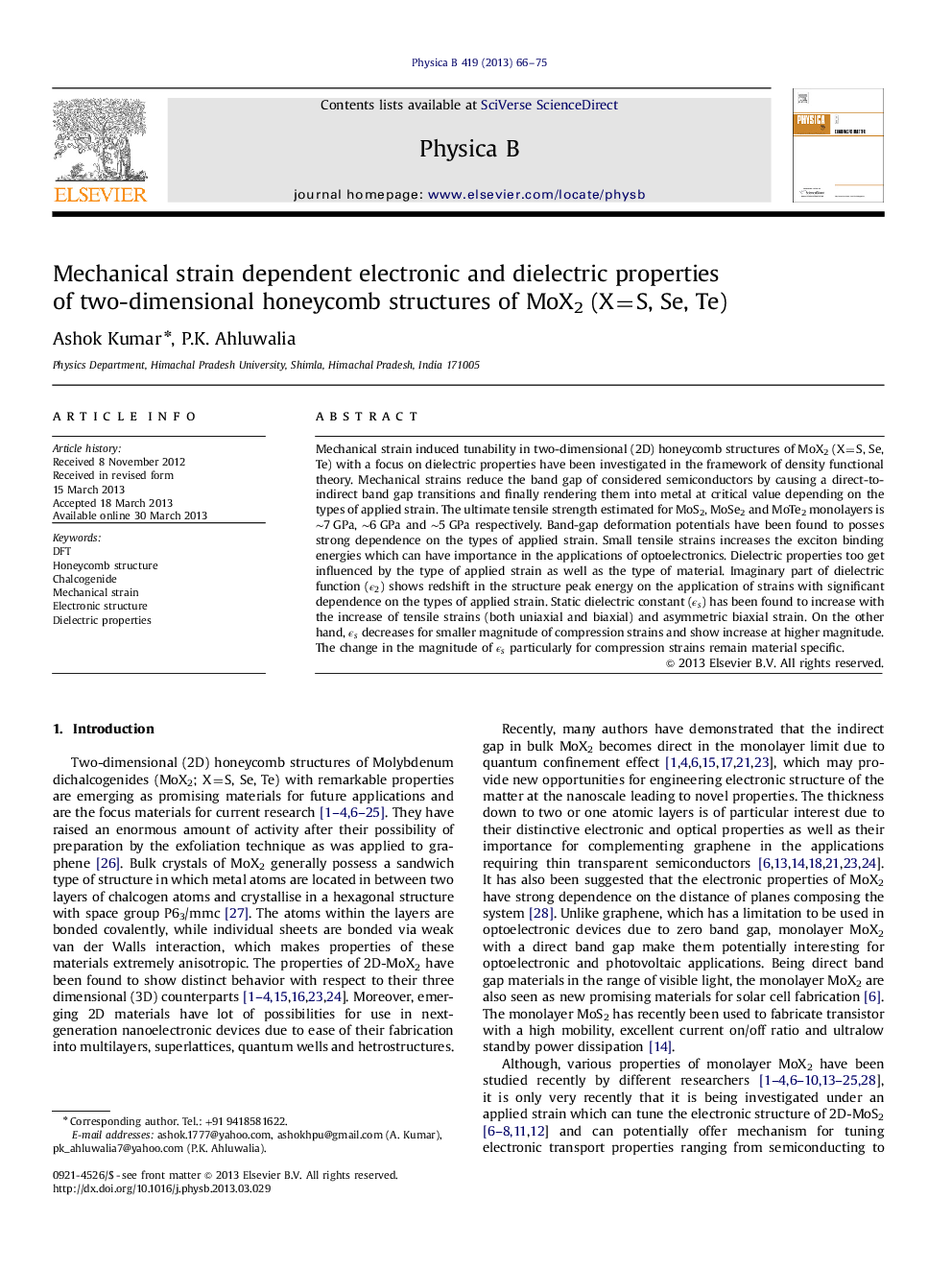| کد مقاله | کد نشریه | سال انتشار | مقاله انگلیسی | نسخه تمام متن |
|---|---|---|---|---|
| 1810166 | 1525227 | 2013 | 10 صفحه PDF | دانلود رایگان |

Mechanical strain induced tunability in two-dimensional (2D) honeycomb structures of MoX2 (X=S, Se, Te) with a focus on dielectric properties have been investigated in the framework of density functional theory. Mechanical strains reduce the band gap of considered semiconductors by causing a direct-to-indirect band gap transitions and finally rendering them into metal at critical value depending on the types of applied strain. The ultimate tensile strength estimated for MoS2, MoSe2 and MoTe2 monolayers is ∼7GPa, ∼6GPa and ∼5GPa respectively. Band-gap deformation potentials have been found to posses strong dependence on the types of applied strain. Small tensile strains increases the exciton binding energies which can have importance in the applications of optoelectronics. Dielectric properties too get influenced by the type of applied strain as well as the type of material. Imaginary part of dielectric function (ϵ2ϵ2) shows redshift in the structure peak energy on the application of strains with significant dependence on the types of applied strain. Static dielectric constant (ϵsϵs) has been found to increase with the increase of tensile strains (both uniaxial and biaxial) and asymmetric biaxial strain. On the other hand, ϵsϵs decreases for smaller magnitude of compression strains and show increase at higher magnitude. The change in the magnitude of ϵsϵs particularly for compression strains remain material specific.
Journal: Physica B: Condensed Matter - Volume 419, 15 June 2013, Pages 66–75